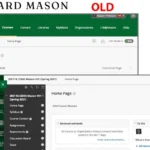Introduction to the 72 Sold Lawsuit
The real estate market is a complex landscape where success often relies on trust and transparency. Recently, the 72 Sold program has garnered attention not just for its business model but also for the legal challenges it faces. The 72 Sold lawsuit has stirred discussions among homeowners, investors, and industry professionals alike. What are the allegations fueling this controversy? How does the company respond to these claims? As we dive deeper into this case, we’ll uncover crucial insights that could impact current and future stakeholders in the housing market. Join us as we explore the layers behind the 72 Sold lawsuit and what it means for everyone involved.
ALSO READ: TheJavaSea.me Leaks AIO-TLP: Analyzing Its Impact on Security
The Allegations Against 72 Sold
The allegations against 72 Sold have raised eyebrows in the real estate community. Critics claim that the company’s practices are misleading for both sellers and buyers.
Some customers allege hidden fees in transactions, stating they were not fully informed about all costs involved. This has led to frustrations among homeowners who expected a transparent process.
Moreover, there are accusations surrounding aggressive sales tactics. Detractors argue that some agents prioritize closing deals over providing honest guidance.
Concerns also extend to marketing claims made by 72 Sold. Some feel these assertions exaggerate potential profit margins, leading clients to unrealistic expectations.
These allegations have fueled discussions about ethical business practices within the industry, prompting many to question whether transparency is truly prioritized at 72 Sold.
Responses from 72 Sold
In light of the allegations, 72 Sold has taken a proactive approach to address concerns. The company issued a public statement emphasizing its commitment to transparency and customer satisfaction.
They assert that many claims have been misconstrued or exaggerated. Their team reassured customers and investors that they are dedicated to ethical practices in real estate transactions.
To further clarify their position, 72 Sold has begun hosting informational webinars. These sessions aim to educate the public about their business model while providing answers directly from executives.
Additionally, they’ve ramped up communication efforts on social media platforms. This strategy is intended to engage with customers and dispel any misinformation circulating online.
The company remains focused on reassuring stakeholders of its integrity amidst ongoing scrutiny. They believe that open dialogue will ultimately strengthen trust within the community.
Investigation into the Claims
The investigation into the 72 Sold lawsuit has unveiled various layers of complexity. As legal experts delve deeper, they are examining documentation and testimonies related to the allegations.
Key players in this inquiry include former clients who have lodged complaints. Their accounts provide crucial insights into their experiences with 72 Sold’s practices.
Regulatory bodies are also involved, scrutinizing business operations for compliance with industry standards. This level of oversight offers a broader perspective on whether any violations occurred.
Furthermore, independent auditors may be called upon to review financial statements and transaction records. Their analysis could reveal discrepancies that might support or refute the claims made against the company.
Media coverage continues to evolve as new information surfaces. Each update adds fuel to public interest surrounding the case, showcasing a growing demand for clarity and accountability from businesses like 72 Sold.
Impact on Customers and Investors
The 72 Sold lawsuit has raised eyebrows among customers and investors alike. Many clients who relied on the service for selling their homes now find themselves questioning its credibility.
Doubts about transparency have begun to seep into customer relationships. Potential sellers may hesitate, wondering if they can trust a platform facing allegations of misconduct.
Investors also bear the brunt of this situation. Their confidence is shaken as they assess how these claims might impact financial returns. A tarnished reputation can lead to decreased interest from potential backers.
As news spreads, market dynamics could shift dramatically. Customers are more likely to seek alternatives that offer both reliability and integrity in transactions.
The ripple effect extends beyond individual cases; it influences consumer behavior in the real estate sector overall. Trust plays a vital role, and any disruption can significantly alter business landscapes.
Lessons Learned from the 72 Sold Lawsuit
The 72 Sold lawsuit serves as a crucial reminder of the importance of transparency in business dealings. Companies must openly communicate their processes to build trust with customers.
Another lesson is the necessity for thorough due diligence. Both investors and consumers should research any service or product before committing. Understanding the terms can prevent misunderstandings later on.
Moreover, accountability cannot be overlooked. Businesses have a responsibility to address customer concerns promptly and effectively. Ignoring issues can lead to escalated problems that tarnish reputations.
This case highlights the power of consumer advocacy. When clients feel wronged, they are more willing than ever to speak up and seek justice. This push for fairness encourages companies to continuously improve their practices and policies.
Conclusion: Ensuring Transparency and Accountability in Business Practices
Ensuring transparency and accountability in business practices is essential for maintaining customer trust. The 72 Sold lawsuit has shed light on the importance of clear communication and ethical behavior within the real estate industry.
As businesses navigate challenges, it’s crucial to prioritize honesty in all dealings. Customers deserve clarity about services, fees, and processes involved in transactions. Investors also seek assurance that their interests are being protected.
The discussions surrounding this lawsuit can serve as a reminder for companies everywhere to uphold high standards of integrity. By doing so, they not only secure their reputation but also foster a culture of trust that benefits everyone involved.
Maintaining an open dialogue with clients and stakeholders helps build lasting relationships rooted in respect and reliability. As we look at the implications of such legal matters, one thing remains clear: accountability should always be at the forefront of business operations to achieve long-term success.
ALSO READ: A true relationship is two imperfect people refusi – tymoff
FAQs
What is the “72 Sold Lawsuit”?
The “72 Sold Lawsuit” refers to legal challenges faced by the real estate company 72 Sold, involving allegations of misleading practices, hidden fees, and aggressive sales tactics, which have sparked concerns about transparency in the housing market.
What allegations are made against 72 Sold?
Customers claim hidden fees, misleading marketing, and aggressive sales tactics. Some feel they were not fully informed about all costs involved or that profit claims were exaggerated, leading to unrealistic expectations.
How is 72 Sold responding to the lawsuit?
72 Sold has issued public statements asserting their commitment to transparency. The company is hosting webinars and increasing communication efforts to address concerns and clarify their business model to the public.
What impact has the lawsuit had on 72 Sold’s reputation?
The lawsuit has raised doubts among customers and investors regarding the company’s credibility, leading to decreased trust and a potential shift in market behavior, as people may seek alternative services that offer more transparency.
What lessons can be learned from the 72 Sold lawsuit?
The case underscores the importance of transparency, due diligence, and prompt accountability in business dealings. Companies must communicate openly with customers and address concerns to build trust and avoid reputational damage.











